Form Ct-1040 Nr/py - Connecticut Nonresident And Part-Year Resident Income Tax Return And Instructions - 2013 Page 6
ADVERTISEMENT
Generally, the Connecticut and federal fi ling status must be the
Resident, Part-Year Resident, or Nonresident
same. A surviving spouse may fi le a joint Connecticut income
The following terms are used in this section:
tax return if the surviving spouse fi led a joint federal income tax
Domicile (permanent legal residence) is the place you intend to
return. Write “fi ling as surviving spouse” in the deceased spouse’s
have as your permanent home. It is the place you intend to return to
signature line on the return. If both spouses died in 2013, their
whenever you are away. You can have only one domicile although
legal representative must fi le a fi nal return.
you may have more than one place to live. Your domicile does not
change until you move to a new location and defi nitely intend to
Claiming a Refund for a Deceased Taxpayer
make your permanent home there. If you move to a new location
If you are a surviving spouse fi ling jointly with your deceased
but intend to stay there only for a limited time (no matter how
spouse, you may claim the refund on the jointly-fi led return. If you
long), your domicile does not change. This also applies if you are
are a court-appointed representative, fi le the return and attach a
working in a foreign country.
copy of the certifi cate that shows your appointment. All other fi lers
Permanent place of abode is a residence (a building or structure
requesting the deceased taxpayer’s refund must fi le the return and
where a person can live) that you permanently maintain, whether
attach federal Form 1310, Statement of Person Claiming Refund
or not you own it, and generally includes a residence owned by or
Due a Deceased Taxpayer, to the front of the return.
leased to your spouse. A place of abode is not permanent if it is
Income received by the estate of the decedent for the portion of the
maintained only during a temporary stay for the accomplishment
year after the decedent’s death, and for succeeding taxable years
of a particular purpose.
until the estate is closed, must be reported each year on Form
Resident
CT-1041, Connecticut Income Tax Return for Trusts and Estates.
You are a resident for the 2013 taxable year if:
Special Information for Nonresident Aliens
• Connecticut was your domicile (permanent legal residence) for
If you are a nonresident alien, you must fi le a Connecticut income
the entire 2013 taxable year; or
tax return if you meet the requirements of Who Must File Form
• You maintained a permanent place of abode in Connecticut
CT-1040NR/PY, on Page 5. In determining whether you meet
during the entire 2013 taxable year and spent a total of more
the gross income test, you must take into account any income
than 183 days in Connecticut during the 2013 taxable year.
not subject to federal income tax under an income tax treaty
Nonresident aliens who meet either of these conditions are
between the United States and the country of which you are a
considered Connecticut residents even if federal Form 1040NR-EZ
citizen or resident. Income tax treaty provisions are disregarded for
or federal Form 1040NR is fi led for federal income tax purposes.
Connecticut income tax purposes. Any treaty income you report
See also Special Rules for Married Individuals on Page 15 and
on federal Form 1040NR or Form 1040NR-EZ and not subject
Special Information for Nonresident Aliens on this page.
to federal income tax must be added to your federal adjusted
If you are a resident, you must fi le Form CT-1040 if any of the
gross income. See Form CT-1040, Schedule 1, Line 38, or Form
following is true for the taxable year:
CT-1040NR/PY, Schedule 1, Line 40.
• You had Connecticut income taxes withheld;
If you do not have and are not eligible for a Social Security
Number (SSN), you must obtain an Individual Taxpayer
• You made estimated tax payments or a payment with Form
Identifi cation Number (ITIN) from the IRS and enter it in the space
CT-1040 EXT to Connecticut;
provided for an SSN. You must have applied for and been issued
• You meet the gross income test;
an ITIN before you fi le your income tax return. However, if you
• You had a federal alternative minimum tax liability or
have not received your ITIN by April 15, fi le your return without
• You are claiming the Connecticut earned income tax credit
the ITIN, enter Applied For or NRA in the SSN fi eld, pay the tax
(CT EITC).
due, and attach a copy of federal Form W-7, Application for IRS
Individual Taxpayer Identifi cation Number. DRS will contact you
Part-Year Resident
upon receipt of your return and will hold your return until you
You are a part-year resident for the 2013 taxable year if you
receive your ITIN and you forward the information to us. DRS
changed your permanent legal residence by moving into or out of
cannot process your return until we receive the ITIN.
Connecticut during the 2013 taxable year. If you are a part-year
A married nonresident alien may not fi le a joint Connecticut
resident, you may not elect to be treated as a resident individual.
income tax return unless the nonresident alien is married to a
If you are a part-year resident and you meet the requirements of
citizen or resident of the United States and they have made an
Who Must File Form CT-1040NR/PY for the 2013 taxable year,
election to fi le a joint federal income tax return and they do, in fact,
you must fi le Form CT-1040NR/PY.
fi le a joint federal income tax return. Any married individual fi ling
Nonresident
federal Form 1040NR or federal Form 1040NR-EZ is not eligible
to fi le a joint federal income tax return or a joint Connecticut
You are a nonresident for the 2013 taxable year if you are neither
income tax return and must fi le a Connecticut income tax return
a resident nor a part-year resident for the 2013 taxable year.
as a married individual fi ling separately.
If you are a nonresident and you meet the requirements of Who
Must File Form CT-1040NR/PY for the 2013 taxable year, you
must fi le Form CT-1040NR/PY.
If you meet all of the conditions in Group A or Group B, you
may be treated as a nonresident for 2013 even if your domicile
was Connecticut.
Page 6
ADVERTISEMENT
0 votes
Related Articles
Related forms
Related Categories
Parent category: Financial
 1
1 2
2 3
3 4
4 5
5 6
6 7
7 8
8 9
9 10
10 11
11 12
12 13
13 14
14 15
15 16
16 17
17 18
18 19
19 20
20 21
21 22
22 23
23 24
24 25
25 26
26 27
27 28
28 29
29 30
30 31
31 32
32 33
33 34
34 35
35 36
36 37
37 38
38 39
39 40
40 41
41 42
42 43
43 44
44 45
45 46
46 47
47 48
48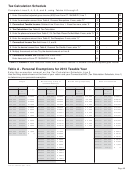 49
49 50
50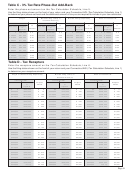 51
51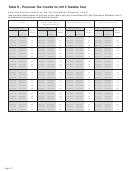 52
52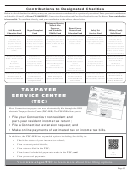 53
53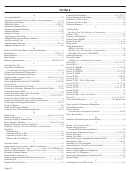 54
54 55
55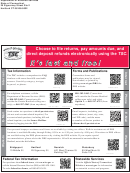 56
56








